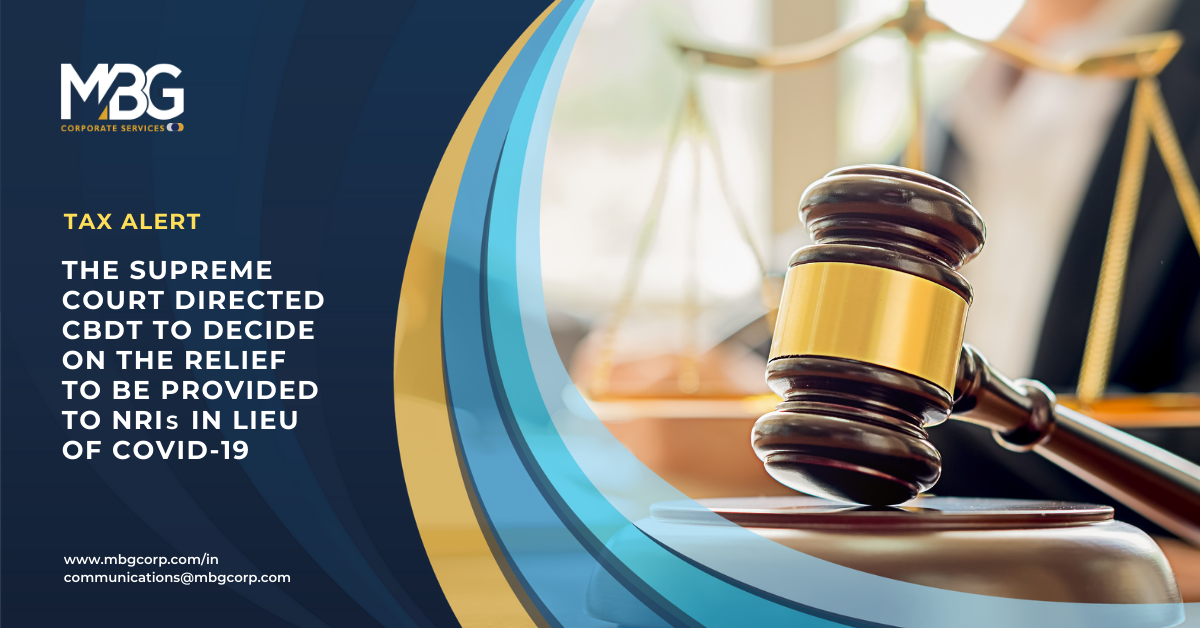Direct Tax Alert
No retrospective application of 30% disallowance on non-withholding of taxes
August 26, 2020

Summary
- Honorable Supreme Court (SC) in the case of Shree Choudhary Transport Company (Taxpayer) vs Income Tax Officer decided on the following issues:
1. Applicability of Section 194C of the Income Tax Act, 1961 (ITA);
2. Whether disallowance under Section 40(a)(ia) of the ITA is limited to the amount payable and not to the amount already paid?
3. Whether Section 40(a)(ia) of the ITA is applicable from the Financial Year 2005-06 and is not applicable from the Financial Year 2004-05?
- The taxpayer defaulted in deduction of tax at source (TDS) on the payment made to certain truck operators even on exceeding the specified threshold on the basis that there was no contract identifying the vehicles or determining the consideration. SC held that as long as a certain truck was engaged for the execution of work and freight charges were paid and the taxpayer was not acting as an agent, it was not necessary to reduce such contract to writing and therefore the Taxpayer was required to deduct TDS on the payments to truck operators.
- SC held the principle that the term "payable" shall also include the amounts paid during the year.
- SC also held that the amount of disallowance to 30% shall be applicable from 1 April 2015 without any retrospective effect.
Facts of the Case
- The taxpayer had entered into a contract with Aditya Cement Limited (ACL) for transporting cement;
- As per the agreement in case of the Taxpayer failed to provide trucks for transportation, ACL can hire trucks from the market at prevailing prices and the expenses incurred by ACL can be recovered from the Taxpayer;
- The taxpayer did not own any trucks of its own and engaged the services of truck operators for such transportation and paid to the truck operators the consideration received from ACL post deduction of freight and commission charges;
- In few cases, the invoices raised by truck operators exceeded the threshold limit for TDS of INR 20,000, however, the payments were divided into more than one payment even though aggregating above INR 20,000 per day. No TDS was deducted by the Taxpayer on the basis that no single payment exceeded the threshold limit of INR 20,000;
- The Assessing Officer (AO) held that merely splitting payments does not release Taxpayer from the obligation to comply with the TDS compliances. It was observed that the Goods Receipt (GR) for transportation amounted to a contract and since payments to different truck operators were made directly by the Taxpayer, TDS provisions were applicable. Accordingly, the expenses were disallowed by the AO and were further confirmed by the subsequent appellate authorities;
- Aggrieved Taxpayer filed an appeal before the SC.
Contention of the Taxpayer
- The taxpayer was not required to deduct tax from the payments to truck operators in the absence of a contract with the truck operators;
- The taxpayer was a mere facilitator between ACL and truck operators and there was no obligation of deducting tax on the Taxpayer;
- Disallowance for non-deduction of TDS would be applicable only to expenses that are "payable" and not applicable to expenses that are already "paid";
- Amendment in the provisions from "credited or paid" to the word "payable" needs to be considered while deciding in the matter as the intent of the provision in using the term "payable" is only to disallow the amount payable;
- Taxpayer placed reliance on the Calcutta High Court decision in the case of PIU Gosh vs. Deputy Commissioner of Income-Tax & Ors. (2016) 386 ITR 322, which had held that giving retrospective effect to the disallowance provision would amount to punishing the Taxpayers;
- Amendment, limiting the extent of disallowance to 30% was retrospective, and considering the same, disallowance should be restricted to 30% in the matter under consideration. In this regard, the Taxpayer placed reliance on the SC decision in the case of Commissioner of Income Tax (Kolkata X) vs. Calcutta Export Company (2018) 404 ITR 654.
Ruling of the Supreme Court
- There is no relevance of the fact that the contract is not in writing, the truck operators were not bound to supply the trucks and the freight payable was not pre-determined. When any truck was engaged for the purpose of execution of the work undertaken by the Taxpayer and freight charges were paid, all the essentials of the making of a contract existed.
- There was privity between Taxpayer and the truck operator and not with ACL. It is immaterial whether the Taxpayer had identified trucks or had been picking them up on a freelance basis since the legal effect on the status of parties will remain the same.
- The principle that the term "payable" shall also include the amounts paid during the year.
- When the legislature consciously stated that the provision is to be effective from 1 April 2005, it is applicable only from Financial Year 2005-06. SC held that the amount of disallowance to 30% shall be applicable from 1 April 2015 without any retrospective effect.
- The taxpayer defaulted in deduction of TDS on payment made to certain truck operators even on exceeding the specified threshold on the basis that there was no contract identifying the vehicles or determining the consideration. SC held that as long as a certain truck was engaged for the execution of work and freight charges were paid and Taxpayer was not acting as an agent, it was not necessary to reduce such contract to writing and therefore the Taxpayer was required to deduct TDS on the payments to truck operators.
Last Updated: 26th August 2020 This article is contributed by:








